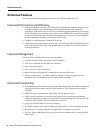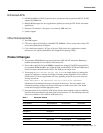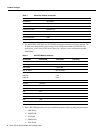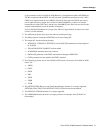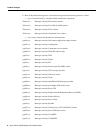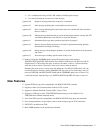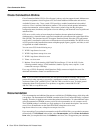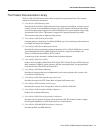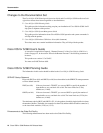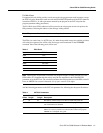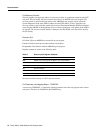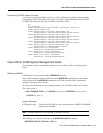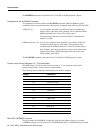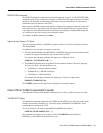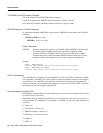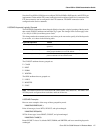
10 Cisco IOS for S/390 Release 2.0 Release Notes
Documentation
Changes to the Documentation Set
The Cisco IOS for S/390 Planning and Operations Guide and Cisco IOS for S/390 Installation Guide
of previous releases have been reorganized as described below:
• Cisco IOS for S/390 Planning Guide
This guide provides information to help you plan your installation of Cisco IOS for S/390. It will
ship prior to shipment of the product.
• Cisco IOS for S/390 System Management Guide
This guide provides information about Cisco IOS for S/390 operation and system commands. It
will ship with the product.
• Cisco IOS for S/390 release 2.0 Release Notes (this document)
The release notes now contain installation information. They will ship with the product.
Cisco IOS for S/390 User's Guide
A correction is required for Chapter 9, “Remote Executor,” of the Cisco IOS for S/390 User's
Guide. On page 9-2, in the section “What is the Remote Executor?” the following statement is
incorrect:
This product uses version 5.5 of SAS C.
You must use SAS/C Release 6.00.
Cisco IOS for S/390 Planning Guide
The information in this section should be added to the Cisco IOS for S/390 Planning Guide.
SERVICE Startup Statement
Keywords IBUF(aaa bbb) and OBUF(aaa bbb) have been added to the SERVICE startup statement
to allow default override:
The minimum value for IBUF and OBUF is 512; it is the product of multiplying the buffer size times
the number of buffers. The buffer size cannot be less than 256, and the number of buffers cannot be 0,
so the lower limit would be (2 256) or (1 512).
Enhancements to the Global Exit Facility
The following enhancements have been made to the Global Exit Facility.
IBUF(aaa bbb) If the service name is TELNET, you can use IBUF to specify the number of
input buffers as aaa, and their size as bbb. The lower limits are (2 256);
defaults are (1 1460).
OBUF(aaa bbb) If the service name is TELNET, you can use OBUF to specify the number of
output buffers as aaa, and their size as bbb. The lower limits are (2 256); the
defaults are (4 1460).



